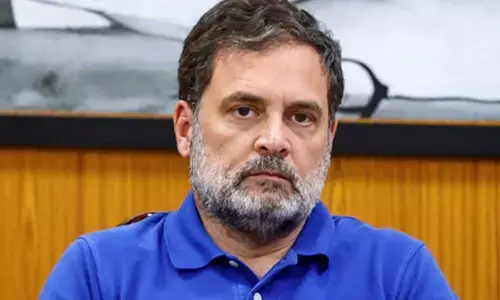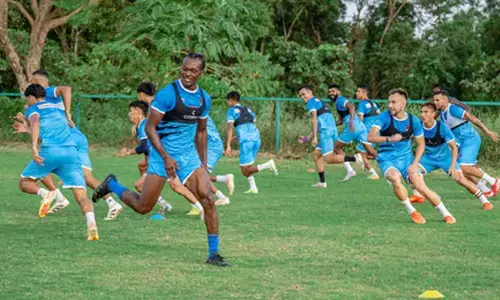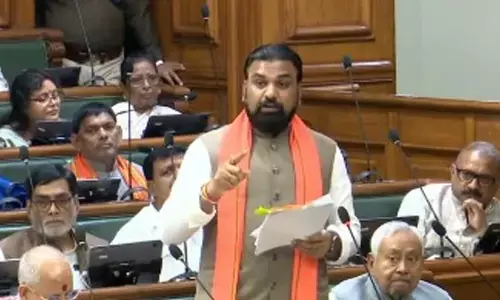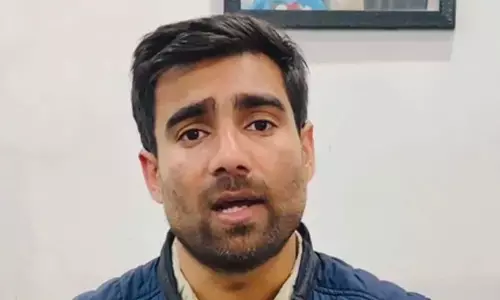Bringing up the parents
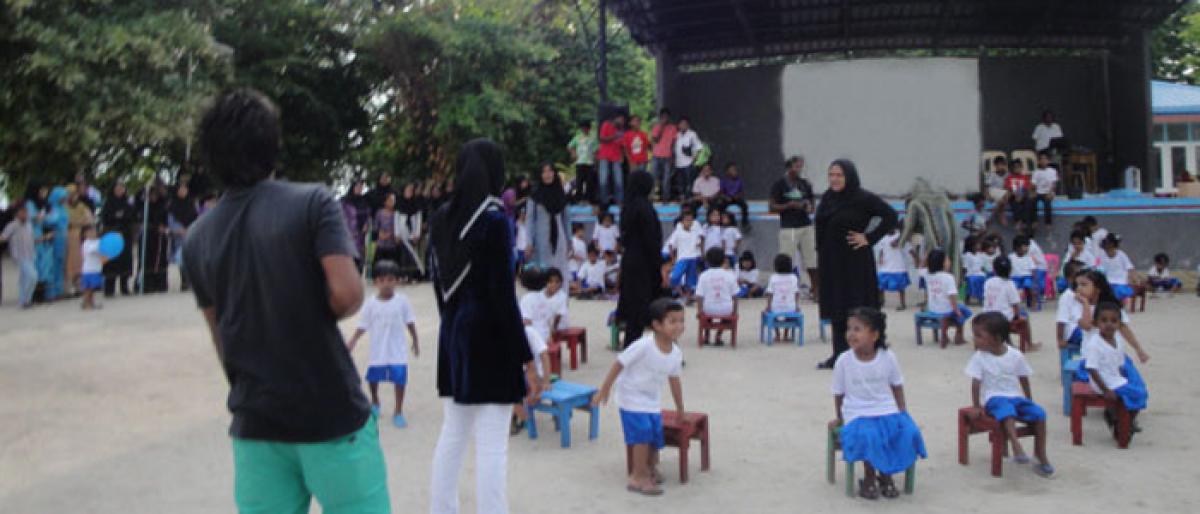
Just the other day the country celebrated 14 November as the Children’s Day. Countrywide events were held, and much listless lip service was paid to the cause of children, the need to centre-stage them and bring their welfare into the mainstream of national life. By and large, however, the entire approach remained, as in the past, largely symbolic and for the sake of form. And, unfortunately, dro
“The child is the father of man” – William Wordsworth in ‘The Rainbow’ Just the other day the country celebrated 14 November as the Children’s Day. Countrywide events were held, and much listless lip service was paid to the cause of children, the need to centre-stage them and bring their welfare into the mainstream of national life. By and large, however, the entire approach remained, as in the past, largely symbolic and for the sake of form. And, unfortunately, drowned in all that din was the voice of the children, pleading to be heard.
Not a week passes these days without our hearing the news of students being pressurised by parents, teachers or sports coaches, demanding better performance. We constantly hear stories of students in the same or the other corporate college hostel committing suicide, on account of the stress caused by the pressure to do better. Normally, the children remain passive victims of such treatment. Only the other day, however, I came across interesting news of about 60 students of a private school in Hyderabad, resorting to a protest, demonstrating against the attitude of their parents and teachers.
They not only raised slogans of “we want justice,” but also complained to the National Children’s Rights Commission which, in turn, referred the matter to the Collector of the district concerned for further action. What puzzles me is why the Commission did not choose to question the parents. After all, it is they who need to be counselled in the first place! In short, the parents need to be brought up properly. Even in our school days, we faced such peer pressures. While in the final year of school at All Saints’ High School in Hyderabad, I was in a similar situation. I was a good student, and hopes ran high that I would get (what was then known as) the ’Gokhale’ scholarship –awarded every year to the student who stood first among the students of all schools in the Higher Secondary Certificate examination.
The need to perform well affected my attitude so much that, on the day of an important exam, I actually had to return home from halfway to the examination hall, as I had spilled ink all over my shirt. What with that incident, and the overall feeling of nervousness, I managed to do only half as well as I expected to. As a result, I stood fourth in the state (instead of the expected first), and my Brother Reactor (as the Principal of the School was called) actually refused to entertain me for an interview for a whole year. I refer to this incident only by way of strengthening the argument that excessive expectations can only lead to needless pressure, and hamper performance.
Another phenomenon that has surfaced in recent times is that of children being subjected to enormous strain in the name of performance and competition on stage and on TV shows. All work and no play, as the clichéd saying goes, does indeed make a dull boy! Thus, while increasing opportunities for children to participate and compete in shows, games, plays or movies, one should not subject them to inordinate pressure. They should be encouraged to understand that competing is in itself an end, and need not necessarily lead to recognition or the shape of a prize.
The time would certainly appear to have come when it is necessary for us to decide whether it is in the interest of children to expose them to such pressure, stress and tension, in the long run. There was this other time when, while in middle school at Guntur, I was asked to do a mono action of Hamlets’ “To be or not to be” during the annual school day celebrations. My background as a former child actor prompted the teachers to choose me. Yes, I was a child star in the early 1950s.
Starting out in the Andhra Balananda Sangham in Madras (as Chennai then known), I moved to movies and, over three years acted in 28 movies apart from stage shows. That was the time when child actors played significant roles in movies, and were well known to the audiences by virtue of their performance. Some may remember a Telugu movie called “Pelli Chesi Choodu” in which the child actors held the fort for nearly the whole of the first hour, only after which the hero made an entry. I, myself, acted in that movie. As a result, I had become so well-known that when my parents left Chennai for Guntur following the formation of the Andhra state, I was mobbed at the railway stations all along the route.
With this background, the need I felt to rise to their expectations and parents and not belie their hopes was so acute that it turned nervous and anxious, and, ultimately, ruined my performance. I was, in fact, so nervous as to have even forgotten to button my trousers properly.In one movie, I acted as a boy whose mother dies. I was asked to weep over her dead body. I naturally refused, saying that that my mother was very much alive, and I would not perform such a gruesome act. (After all, I was a mere six years old). The director (the tall and imposing Mukkamala, a popular Telugu actor) then had to get my mother to the set, ask her to talk to me and tell me that, since it was only make believe, I should go ahead.
In another movie, the legendary L V Prasad played the role of my father. Driven by poverty and hunger, the child I was portraying was, as the story went, forced to take to begging to earn some money. The father notices and drags the child home and beats him up. That scene was enacted with Prasad pretending to slap me, and I acting as it I was actually hurt. What actually transpired was that, during one of the takes, a slap really hurt me. I promptly quit and ran away home not to return for over 15 days. Prasad, poor man, had to buy me a game of “Trade” to induce me to get back to shooting.
I often recall with great nostalgia my boyhood days in Hyderabad city. The games one played went with the seasons – tops (lattoos), Gillidanda an ancient rural amateur sport played with a long stick and shorter one, marbles and kite-flying – to mention just a few. While it is perhaps true that it is a weakness of every generation to pine for what it regards as “the good old days,” is it not really true that the children of today hardly seem to have any time for such innocent pursuits?
My parents adopted a healthy and wholesome attitude towards encouraging me to act. They let it happen until they felt that enough was enough and studies counted for more. I am happy to be able to say that Usha, my wife, and I have been able to do more or less the same with our own children. Most certainly, we encouraged them to play games and take part in dramas, learn music etc., without in any way making them feel the compulsion to perform well.
(The nation today faces many complex and daunting challenges in the context of ensuring that its children get everything they are entitled to and can expect to lead happy, healthy and productive lives. The list is long and includes infantile mortality, scarcity of health, medical and educational facilities, lack of access to safe and adequate drinking water, the provision of a clean environment and protection from abuse. Only a small segment of this broad canvas has been addressed in this article).
By:Dr Mohan Kanda
(Writer is former Chief Secretary, Government of Andhra Pradesh)





